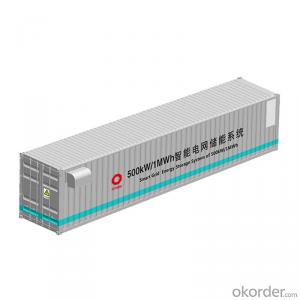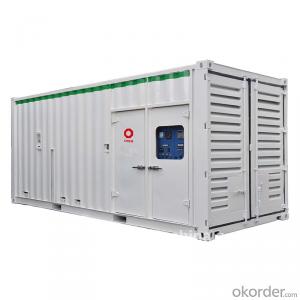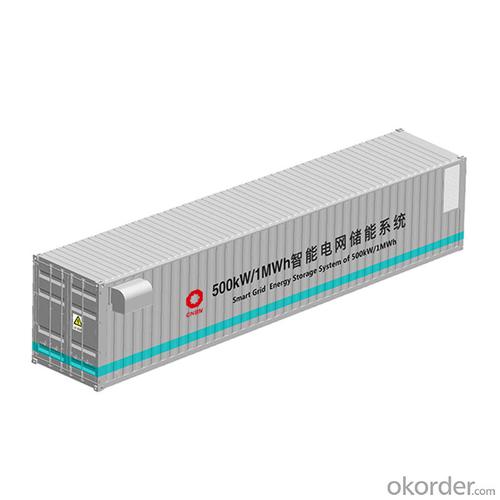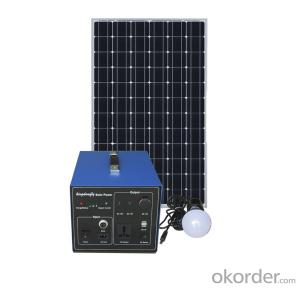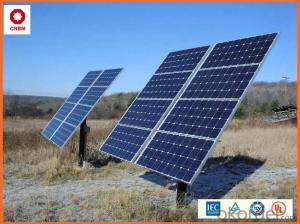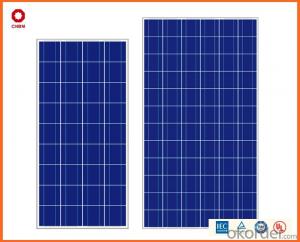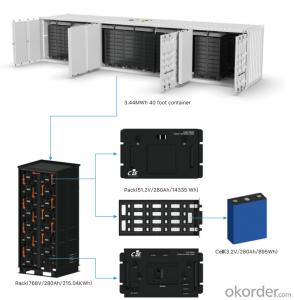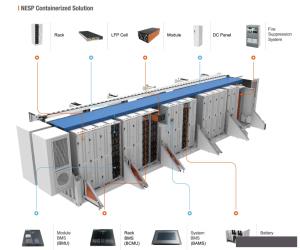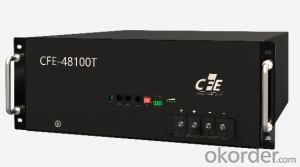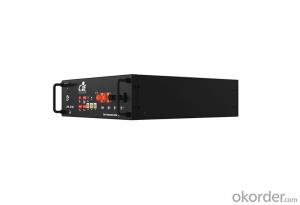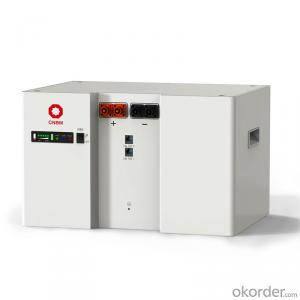Zen Solar Energy Systems - ESS Solar Energy Storage System 500kW 1MWh with LifePO4 Battery Container
- Loading Port:
- Shanghai
- Payment Terms:
- TT OR LC
- Min Order Qty:
- 1 unit
- Supply Capability:
- 10 unit/month
OKorder Service Pledge
OKorder Financial Service
You Might Also Like
Specification
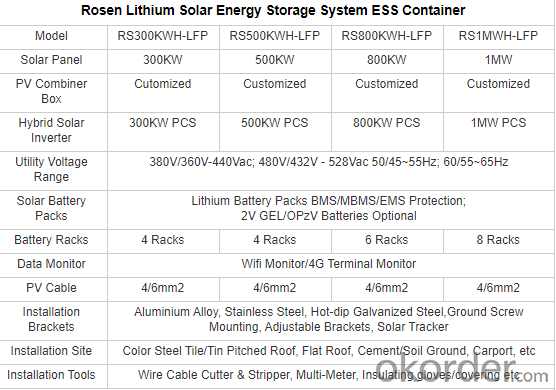
Solar Panels
Mono/Poly/felxible/black etc all types Panels;
High efficiency power up to 450W/ 550W/600W Half Cell/Bifacial Solar PV Modules;
All certificates listed with more than 30years life and warranty
PID Resistant,High salt and ammonia resistance;
Hybrid Energy Storage Inverter
Automatic Switch to charge loads, batteries or from Grid backup with priority setting function; Lithium Battery and GEL storage battery compatible with almost all types of inverters;Comprehensive WIFI monitor for electricity production and consumption data, to check your investment payment on time;
Solar Lithium/GEL Battery Packs
Lithium and GEL Storage Batteries Optional;
100Ah/150Ah/200Ah, with 100kwh/300kwh/500kwh capacity;
BMS Communication matched with almost all types of hybrid energy inverters;
Installation is convenient with cable, rack etc Accessories ready in package.
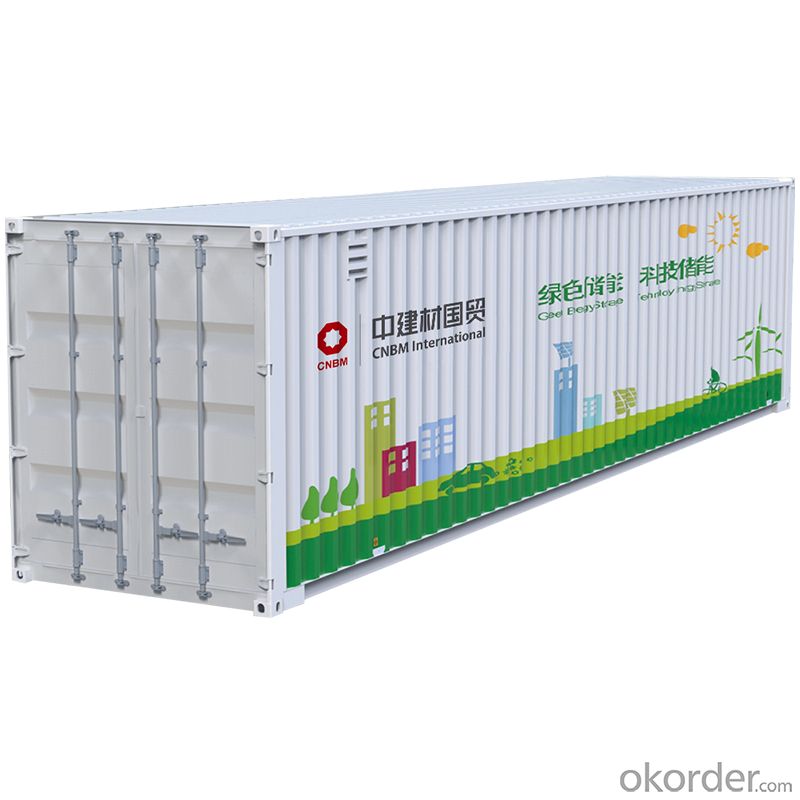
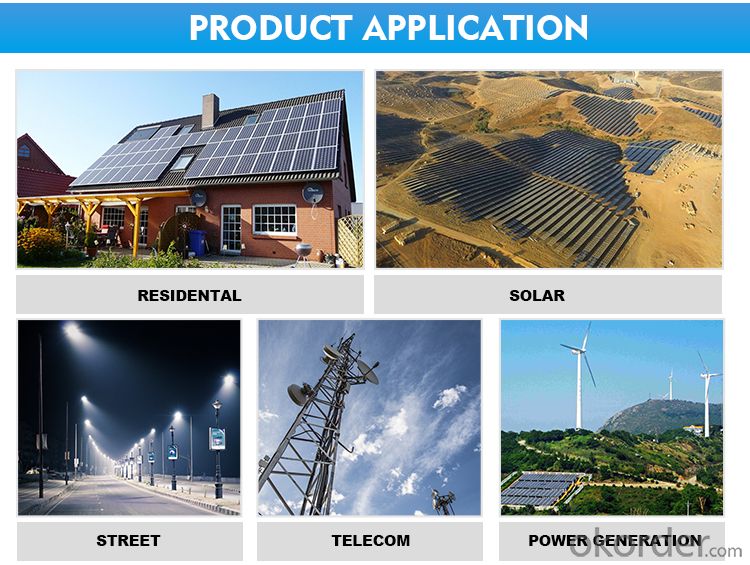
- Q: Can solar energy systems be used in areas with limited access to solar energy warranties and guarantees?
- Yes, solar energy systems can still be used in areas with limited access to solar energy warranties and guarantees. While warranties and guarantees provide added assurance and protection, the functionality and performance of solar energy systems largely depend on the availability of sunlight. Even in areas with limited access to sunlight, solar energy systems can still generate electricity, although their efficiency and output may be reduced. It is important to consider factors such as the amount of available sunlight, system design, and energy storage options to ensure optimal system performance in areas with limited solar energy warranties and guarantees.
- Q: How do solar energy systems impact energy security?
- Solar energy systems can greatly enhance energy security by diversifying the energy mix and reducing dependence on traditional fossil fuels. They provide a decentralized and sustainable source of energy, reducing the vulnerability to disruptions in the supply chain and geopolitical tensions. Furthermore, solar energy systems contribute to grid stability and resilience, as they often include energy storage capabilities.
- Q: Can solar energy systems be used in areas with limited access to sanitation facilities?
- Yes, solar energy systems can be used in areas with limited access to sanitation facilities. Solar energy systems can provide electricity to power sanitation facilities such as water pumps, filtration systems, and waste treatment processes, helping to improve sanitation conditions in these areas. Additionally, solar-powered systems can also be used to generate heat for water heating, further supporting sanitation practices.
- Q: Can solar energy systems be used in areas with limited access to solar energy maintenance services?
- Yes, solar energy systems can be used in areas with limited access to solar energy maintenance services. While regular maintenance can optimize the performance and longevity of solar systems, modern solar panels are designed to be durable and require minimal maintenance. Additionally, advancements in remote monitoring technology allow for easy identification of any issues, enabling timely repairs or maintenance visits. Moreover, training local technicians and establishing community-based maintenance programs can help overcome limited access to professional services, ensuring the sustained operation of solar energy systems in such areas.
- Q: What is the role of solar energy tracking systems?
- Solar energy tracking systems are designed to optimize the efficiency and output of solar panels by ensuring that they are always facing the sun at the optimal angle. These systems use sensors and motors to track the movement of the sun throughout the day and adjust the position of the solar panels accordingly. The primary role of solar energy tracking systems is to maximize the amount of sunlight that hits the solar panels. By continuously tracking the sun's movement, these systems can ensure that the panels are always perpendicular to the sun's rays, capturing the maximum amount of solar energy. This results in increased energy production and improved overall system efficiency. Moreover, solar energy tracking systems can also have a significant impact on the overall energy output throughout the year. By tracking the sun's position and adjusting the tilt and azimuth of the solar panels, these systems can optimize energy production during different seasons and at different latitudes. This adaptability is especially important in locations with significant variations in sunlight intensity and angle throughout the year. In addition to maximizing energy production, solar energy tracking systems also offer other benefits. For example, by evenly distributing the stress and heat across the solar panels, they can extend the lifespan of the panels and improve their durability. Furthermore, these systems can also reduce the amount of land required for solar installations, as they allow for higher power density per unit area. Overall, solar energy tracking systems play a crucial role in enhancing the efficiency, output, and longevity of solar energy systems. By continuously tracking the sun's movement, these systems optimize energy production, increase system efficiency, and ultimately contribute to the wider adoption of renewable energy sources.
- Q: How do solar energy systems impact the reliability of the electrical grid?
- Solar energy systems can have both positive and negative impacts on the reliability of the electrical grid. On the positive side, solar energy systems can enhance the reliability of the grid by diversifying the sources of electricity generation. Traditional power plants heavily rely on fossil fuels, which are finite and prone to price volatility. By integrating solar energy systems into the grid, we can reduce the dependence on fossil fuels and increase the share of renewable energy sources, which are typically more stable and sustainable. Additionally, solar energy systems can improve grid reliability by decentralizing power generation. Traditional power plants are usually centralized, which means that a disruption at one facility can lead to widespread blackouts. In contrast, solar energy systems are typically distributed across various locations, which reduces the risk of a single point of failure and enhances the overall resilience of the grid. However, solar energy systems also pose certain challenges to grid reliability. One of the main concerns is the intermittent nature of solar power generation. Solar panels only produce electricity when exposed to sunlight, which means that their output can fluctuate throughout the day and is completely absent during nighttime. This intermittency can create challenges in matching the supply and demand of electricity in real-time, potentially destabilizing the grid. To address this issue, grid operators need to implement effective energy storage solutions, such as batteries, to store excess solar energy during peak production periods and release it during periods of low or no solar generation. Additionally, advanced forecasting and grid management technologies can help predict and balance the intermittent nature of solar energy, ensuring a reliable and stable electricity supply. In conclusion, while solar energy systems can enhance the reliability of the electrical grid by diversifying energy sources and decentralizing power generation, their intermittent nature poses challenges that need to be addressed through energy storage and efficient grid management techniques. Overall, with proper planning and integration, solar energy systems can contribute to a more reliable and sustainable electrical grid.
- Q: How do solar energy systems affect air pollution?
- Solar energy systems have a positive impact on air pollution as they generate clean and renewable energy without emitting harmful pollutants or greenhouse gases. By reducing the reliance on fossil fuels for electricity generation, solar energy helps to improve air quality and mitigate the negative health and environmental effects associated with air pollution.
- Q: Can solar energy systems be installed on any type of building?
- Yes, solar energy systems can be installed on any type of building, including residential, commercial, and industrial structures. The feasibility of installation may vary depending on factors such as the available roof space, orientation, shading, and structural integrity of the building. However, advancements in solar technology have made it possible to adapt systems to various building types, allowing for widespread adoption of solar energy.
- Q: Can solar energy systems be used in areas with high snowfall?
- Yes, solar energy systems can still be used in areas with high snowfall. While snow can temporarily reduce the efficiency of solar panels, they are designed to withstand snow loads and can still generate electricity. Additionally, advancements in technology, such as tilt angles and snow-shedding designs, help improve the performance of solar systems in snowy conditions. Regular maintenance, such as clearing snow off the panels, can also optimize their efficiency in such areas.
- Q: Can solar energy systems be integrated into building materials, such as solar roof tiles?
- Yes, solar energy systems can be integrated into building materials, and one popular example is solar roof tiles. Solar roof tiles, also known as solar shingles or solar slates, are designed to resemble traditional roofing materials while harnessing solar energy. These specially designed tiles are made of photovoltaic cells that convert sunlight into electricity. Solar roof tiles have several advantages over traditional solar panels. Firstly, they blend seamlessly with the overall appearance of the building, making them more aesthetically pleasing. This integration into the building's structure allows for a more cohesive design, especially in areas where strict architectural guidelines are in place. Additionally, solar roof tiles can be installed on both new and existing buildings, providing a flexible and adaptable solution. Another advantage of solar roof tiles is their ability to generate electricity while being durable and weather-resistant. These tiles are made to withstand various weather conditions, including rain, snow, and wind. Furthermore, solar roof tiles are typically made from high-quality materials, ensuring a longer lifespan compared to traditional roofing materials. The integration of solar energy systems into building materials like solar roof tiles offers numerous benefits. They not only generate clean and renewable energy but also contribute to reducing the reliance on fossil fuels and decreasing carbon emissions. Additionally, solar roof tiles can help reduce energy costs by generating electricity on-site, allowing homeowners and businesses to become more energy-independent. Overall, solar energy systems can indeed be integrated into building materials, and solar roof tiles are a prime example of this. With their aesthetic appeal, durability, and energy-generating capabilities, solar roof tiles are a promising solution for harnessing solar energy while maintaining the architectural integrity of a building.
Send your message to us
Zen Solar Energy Systems - ESS Solar Energy Storage System 500kW 1MWh with LifePO4 Battery Container
- Loading Port:
- Shanghai
- Payment Terms:
- TT OR LC
- Min Order Qty:
- 1 unit
- Supply Capability:
- 10 unit/month
OKorder Service Pledge
OKorder Financial Service
Similar products
Hot products
Hot Searches
Related keywords
